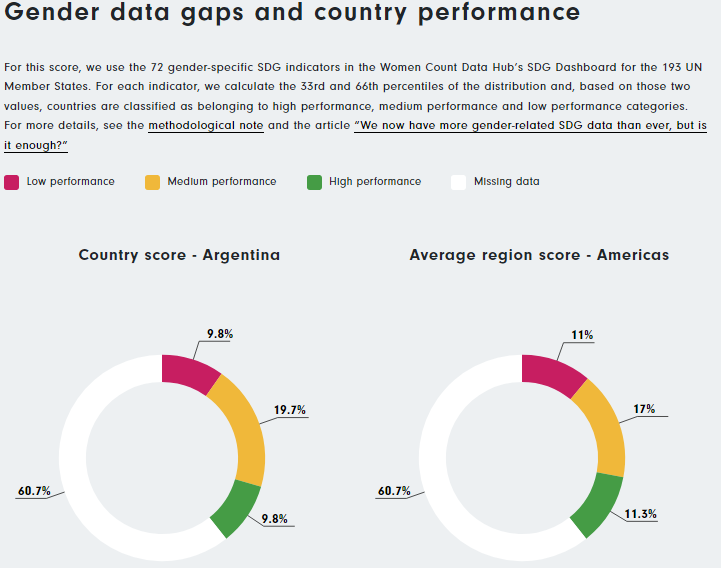Women all over the globe have fought for equal rights in society, majorly revolving around politics and career settings. Looking at the setting of Latin America, multitudes of predominant Argentinian women rallied onto the Plaza de Mayo in Buenos Aires in 2015 under the banner “#NiUnaMenos,” which stands for not one less, to demand accountability for all the ladies who perished in gruesome settings (Durano, 2020). The phenomenon was known as “femicidio” in Argentina, as it is across much of Latin America, to draw attention to the female casualty whose death is frequently, but not always, committed by a close lover. Argentinian feminists widened their initial demands to stop mistreatment and aggression to encompass additional women’s empowerment concerns, including legalizing abortion as it developed into a force (Durano, 2020). Women suffer unjustly due to the nation’s escalating economic crisis (Gonzalez, 2018). For a strong society, women rights need to be valued in accordance with the society laws and statutes.
Women have more challenges to resilience and survivability, partly because of greater joblessness levels, widening gender earnings discrepancies, and other financial drawbacks. Women comprise a disproportionate portion of Argentina’s impoverished 20% demographic (Roth, 2022). The initiative has, in fact, also connected higher levels of distress and worry to a greater chance of abuse and a lesser likelihood of being prepared to escape an unpleasant setting. The initiative wants to minimize women’s economic deprivation by advocating for legislation that promotes the care work they must perform. However, it also wants to increase employment prospects by encouraging governmental and entrepreneurial development in the care industry (Gonzalez, 2018).
There has been a significant advancement in women’s rights worldwide. 100% of the regulatory structures required by the Sustainable Development Goals (SDG) criterion, which focuses on aggression against women, and which advocate, execute, and track gender equity, are in existence in Argentina (Durano, 2020). As depicted in Figure 1 below, Argentinian government compared to those in Latin America is gradually making progress towards attaining the SDGs as set by the global entity, UN. Women had 42.4% of the seats in parliament as of February 2021 (Gonzalez, 2018). To attain gender equality, though, more effort must be put into Argentina.
Argentina’s Congress approved a historic law to decriminalize abortion up to the 14th week of pregnancy in December 2020 (Politi & Londoño, 2020). In circumstances of rape or where the expectant woman’s existence or well-being is in danger, the law also permits ending pregnancies after that point (Politi & Londoño, 2020). Nevertheless, there have been complaints of barriers to getting a lawful abortion, such as a paucity of awareness about the regulation, incorrect utilization of conscientious objector status by medical personnel, and unjustified delays.
Hurdles to the exertion of this right are created for women with impairments who are subject to legal procedures that mainly limit their lawful potential concerning the exertion of their procreative choice or who have been decreed statutorily incapable. These women must obtain additional help from a constitutional delegate or relative to accede to abortion services. Another bill to support expectant mothers and their unborn infants during the first 1,000 days of their lives was enacted by Congress in December 2021 (Roth, 2022). The unjustified death of women continues to be a severe matter despite a statute from 2009 that outlines extensive procedures to deter and convict aggression toward women. Only four verdicts were recorded in the 2020s 251 femicides, according to the most recent information from the National Registry of Femicides, which is overseen by the highest court in the region (Roth, 2022).
Closely comparing it with Costa Rica, the government recently passed legislation that would eliminate the gender gap and safeguard women’s freedoms in Costa Rica, marking a big step forward for the country. The Comprehensive restitution act will support the relatives of femicide victims for survivors of violence against women and girls, which was approved on April 28, 2022 (Philipp, 2022). Fifty-one incidences of femicide that occurred since 2007 still need to be investigated, killing 400 women (Philipp, 2022). The victims’ relatives could receive complete reparations from this bill, which will help them cope with the atrocity’s psychological, emotional, and financial repercussions.
The Law to Prevent, Address, Punish and Eradicate Violence Against Women in Politics was passed by the government on May 3, 2022 (Philipp, 2022). This law defends the governmental liberties of women. It considers deeds like preventing a woman from carrying out her role’s duties, restricting her ability to return to the workplace after becoming pregnant, subverting their reputation, and divulging their details. According to the National Women’s Institute of Costa Rica (INAMU), the law also takes into account abusive behavior, physical, emotional, or gendered assault, as well as prejudicial deeds that hinder the freedom of life, personal credibility, and property ownership to restrict the exercise of legislative liberty (Philipp, 2022). Politicians who behave this way face a range of repercussions, from moral censure to the revocation of credentials.
Despite Argentina and Costa Rica have made considerable headway, there is still plenty that the two nations can do. The biggest challenge that numerous women in Latin America face is income disparity. Eliminating employment discrimination can increase possibilities for women and give them greater power, which may break the cycle of poverty. Alongside attempts to combat femicide and safeguard workplace freedoms, the newly established laws will also give women more flexibility to contribute to society.
References
Durano, M. (2020). The Women’s movement transforming Argentina. Open Society Foundations. Web.
Gonzalez, E. (2018). Infographic: Women in politics in Latin America. AS/COA. Web.
Philipp, J. (2022). Progress in the fight for women’s rights in Costa Rica. The Borgen Project. Web.
Politi, D., & Londoño, E. (2020). Argentina legalizes abortion, a milestone in a Conservative region. The New York Times. Web.
Roth, K. (2022). World Report 2022: Rights trends in Argentina. Human Rights Watch. Web.
